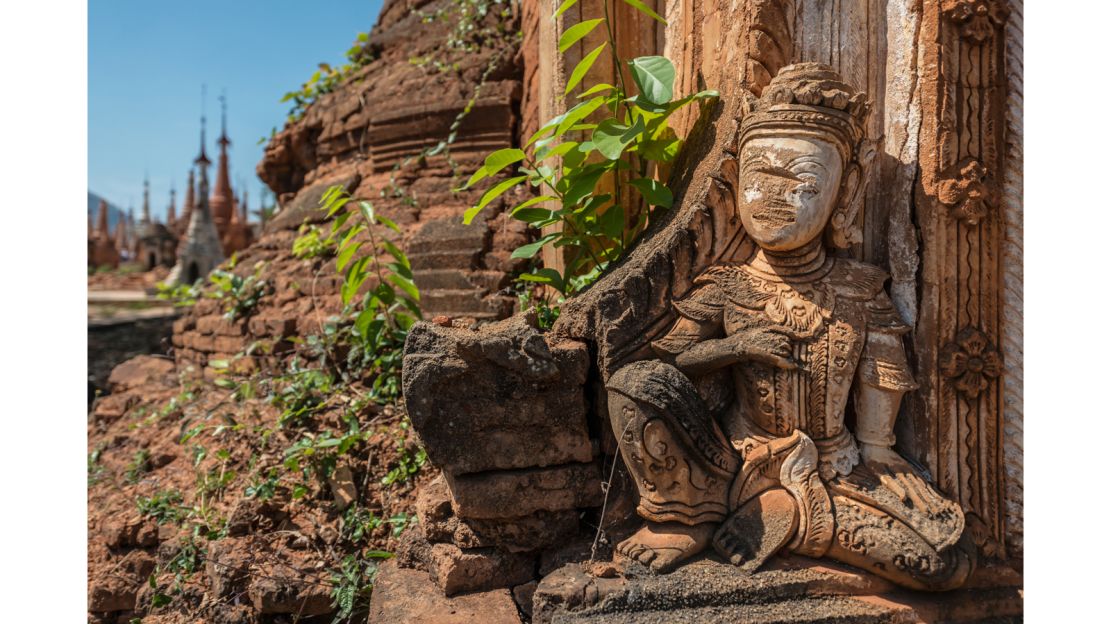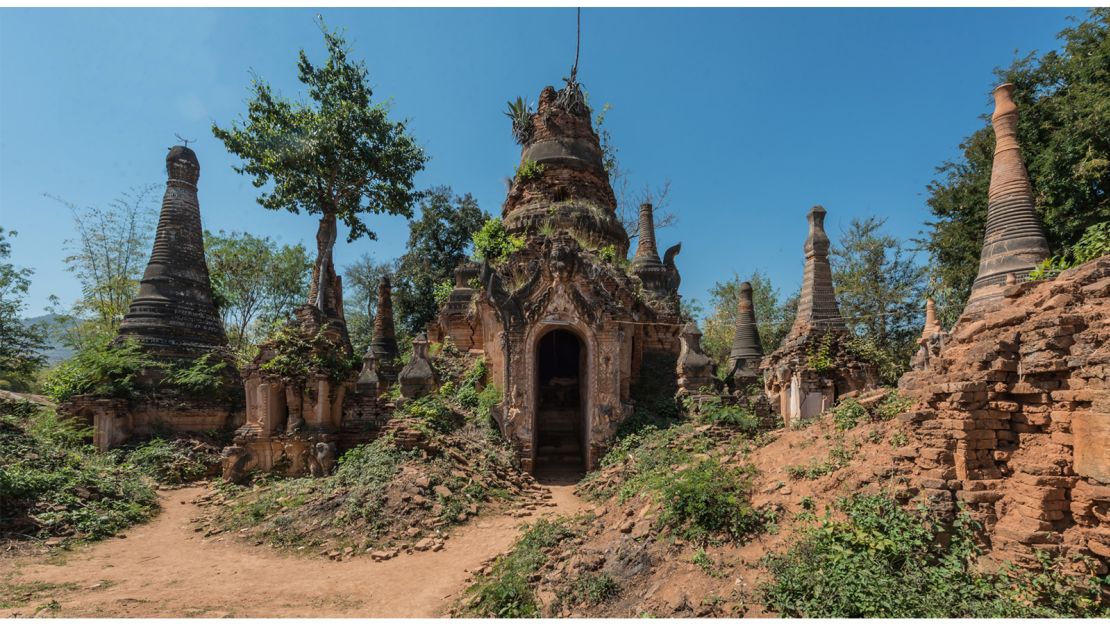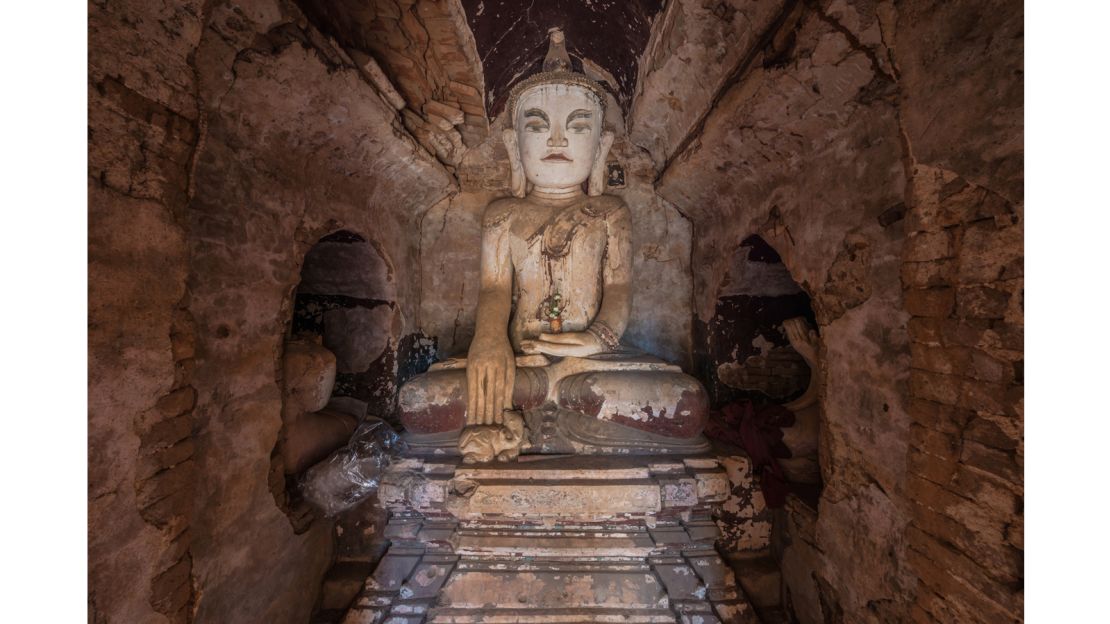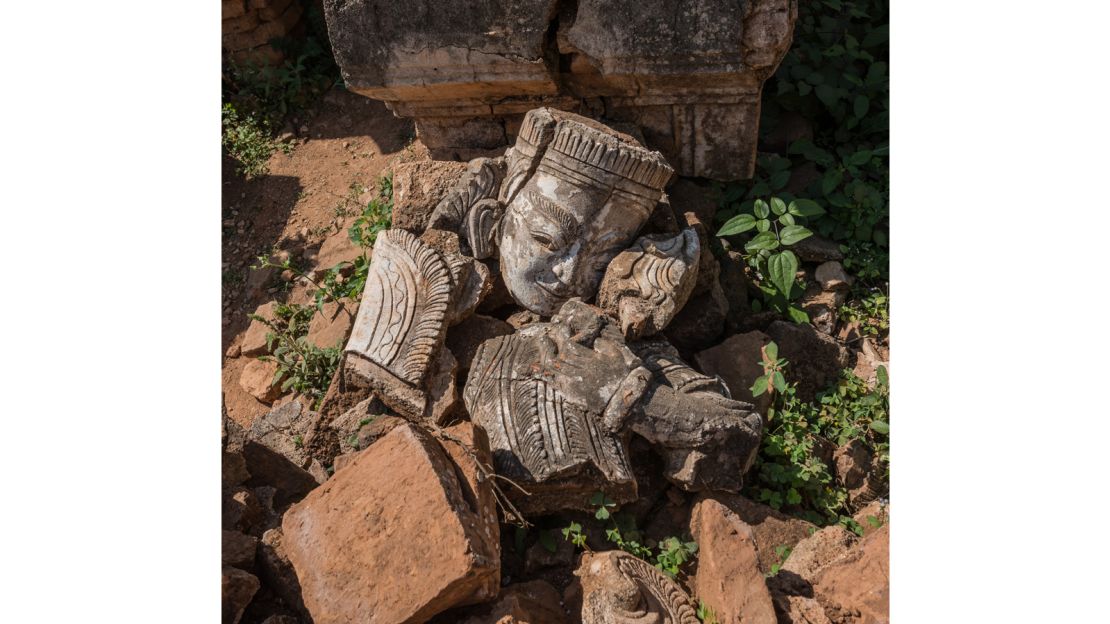Spiraling towers shrouded in green foliage and crumbling, copper-colored Buddha statues: welcome to the village of Indein in Myanmar, home to a series of centuries-old, beautiful pagodas.
French photographer Romain Veillon visited this Southeast Asia destination on a quest to photograph these stunning temples.
His resulting photo series chronicles how nature has taken over the pagodas, and how recent renovations are seeking to restore these Buddhist temples to their former glory.
Little is known about the history of this site, but for Veillon, that’s part of the appeal. The photographer tells CNN Travel that he likes his images to invite questions – and not necessarily offer answers.
“When I encounter such a place, my goal is that everybody can travel in the past with me and make up the stories they decide [they] want to,” Veillon says.
Mesmerizing experience

Veillon specializes in photographing abandoned locales – past subjects include an eerie, dilapidated theme park in Japan and forgotten frescoes in decaying mansions in Italy.
Indein, of course, is not really abandoned. People work in the local market and sell souvenirs. And there’s significant renovation happening.
Still, the striking pagodas ended up on Veillon’s radar, and he added the location to his must-visit list while he was traveling through Myanmar.

Indein is accessible via an hourly canoe boat traversing Inle Lake during the rainy season, which adds to its allure.
Equally intriguing is the exact provenance of the Buddhist pagodas. Legend says the site dates back to the 3rd century, commissioned by King Ashoka, but most of the structures are believed to have been built in the 17th century.
“It is very hard to find information on this place and its history,” says Veillon.
The location was also fairly free of tourists, says the photographer.
Myanmar’s profile as a travel destination has been affected in recent years over treatment of its persecuted Rohingya minority. But according to the latest figures from the UNWTO, there were 3.6 million international tourism arrivals in 2018, a rise of 3% over the previous year.

Walking around, Veillon says he felt “both happy and sad.”
He was pleased that the pagodas are being renovated and restored, but as a photographer enamored with abandoned places, Veillon admits he feels something of the “magic” will be lost along the way.
“I really enjoyed shooting these old temples where vegetation is growing everywhere, to show us how time can change a place and surround it with an eerie and magical atmosphere,” says Veillon.
Alongside the sweeping shots of the spires of the pagodas, intertwined with greenery, there are more intimate images of Buddha statues inside the temples. Some are recently renovated, their features restored. Others are still crumbling.
Veillon struggles to pick a favorite shot. “It’s hard to choose between the Buddha and the pagodas because they are two very different kind of images,” he says.
Abandoned adventures

Veillon, who lives in Paris, says he’s always been fascinated by abandoned places. He loves that they encourage the photographer, and the viewer, to be inquisitive.
“It makes them go in their imaginary world and become the hero of their own adventure, where they are the detective,” he says. “Each story will be different from one another, and that’s what I love.”
The photographer recently scrapped plans to travel to Italy in the wake of the coronavirus outbreak, but he’s already planning more adventures for the future, with Russia and Iran top of his list.
Abandoned, disused and ruined locales will continue to be his top focus.
“To me, my pictures act as a new kind of ‘Memento Mori’; they are here to remind us that everything has an end, and that we should enjoy it while it lasts.”









![<strong>Hidden stories:</strong> Veillon says he's always enjoyed visiting abandoned or semi-abandoned historic places: "When I encounter such a place, my goal is that everybody can travel in the past with me and make up the stories they decide [they] want to," he says.](https://media.cnn.com/api/v1/images/stellar/prod/200310164239-romain-veillon-buddha-photos-3.jpg?q=w_1600,h_900,x_0,y_0,c_fill/h_447)

